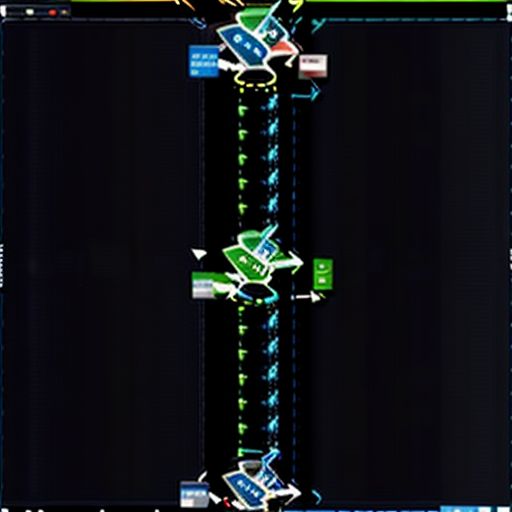Imagine this: your sales team is crushing their targets, but your inventory management is stuck in the dark ages. Orders get misplaced, stock sits idle, and you’re losing money faster than you can count. This, my friend, is where the magic of Enterprise Resource Planning (ERP) Systems comes in.
What are Enterprise Resource Planning (ERP) Systems?
In a nutshell, an ERP system is like the central nervous system of your business. It’s a powerful software solution that integrates and automates all your core business processes – from finance and accounting to inventory, human resources, and customer relationship management (CRM).
Instead of having data siloed in separate departments, an ERP system creates a single source of truth, allowing for seamless information flow across your entire organization. This means no more conflicting data, manual data entry errors, or wasted time trying to track down information.
Why is ERP so Important?
In today’s cutthroat business landscape, efficiency is not just a buzzword; it’s a matter of survival. ERP systems are essential for businesses of all sizes looking to:
- Boost Productivity: Automate tedious tasks, streamline workflows, and free up your employees to focus on more strategic initiatives.
- Improve Decision-Making: Get real-time insights into your business performance, identify bottlenecks, and make data-driven decisions.
- Reduce Costs: Eliminate redundant processes, optimize inventory management, and improve resource allocation.
- Enhance Customer Satisfaction: Provide faster, more accurate service, and improve customer interactions across all touchpoints.
FAQs about ERP Systems
1. What are the different types of ERP systems?
ERP systems can be categorized based on deployment models (cloud-based vs. on-premise), industry-specific solutions, and company size (small business vs. enterprise-grade).
2. How do I choose the right ERP system for my business?
Selecting the right ERP system requires careful consideration of your business needs, budget, technical requirements, and long-term goals. It’s crucial to thoroughly evaluate different vendors and seek expert advice.
3. What are some popular ERP software vendors?
Leading ERP vendors in the market include SAP, Oracle, Microsoft Dynamics 365, Infor, and Salesforce.
The Benefits of Different ERP Modules
ERP systems are typically composed of various modules, each catering to specific business functions. Here’s a closer look at some key benefits:
Financial Management
- Streamlined accounting processes: Automate invoice processing, track expenses, and generate financial reports with ease.
- Improved cash flow management: Get a real-time view of your financials, optimize cash flow, and reduce the risk of late payments.
- Enhanced financial reporting and compliance: Generate accurate financial statements and ensure compliance with regulatory requirements.
Supply Chain Management (SCM)
- Optimized Inventory Control: Maintain optimal inventory levels, reduce stockouts, and minimize waste.
- Improved Supplier Relationship Management: Streamline procurement processes, track supplier performance, and negotiate better deals.
- Enhanced Production Planning and Scheduling: Optimize production schedules, allocate resources efficiently, and meet customer demand on time.
Customer Relationship Management (CRM)
- Centralized Customer Data: Store all your customer information in one place, providing a 360-degree view of your customers.
- Improved Sales Force Automation: Automate sales tasks, track leads and opportunities, and improve sales forecasting accuracy.
- Enhanced Customer Service and Support: Provide personalized customer support, track service requests, and resolve issues promptly.
erp.cungphuthe.com/wp-content/uploads/2024/07/erp-system-diagram-66935e.jpg" alt="ERP System Diagram" width="512" height="512">ERP System Diagram
Conclusion
In the digital age, Enterprise Resource Planning systems have become indispensable for businesses striving for operational excellence. By breaking down data silos, automating processes, and providing real-time insights, ERP empowers businesses to optimize their operations, reduce costs, and gain a competitive advantage. If you’re looking to take your business to the next level, investing in a robust ERP solution is crucial for long-term success.
We encourage you to share your thoughts, experiences, and questions about ERP systems in the comments section below. Let’s start a conversation and help each other master the world of business efficiency!
